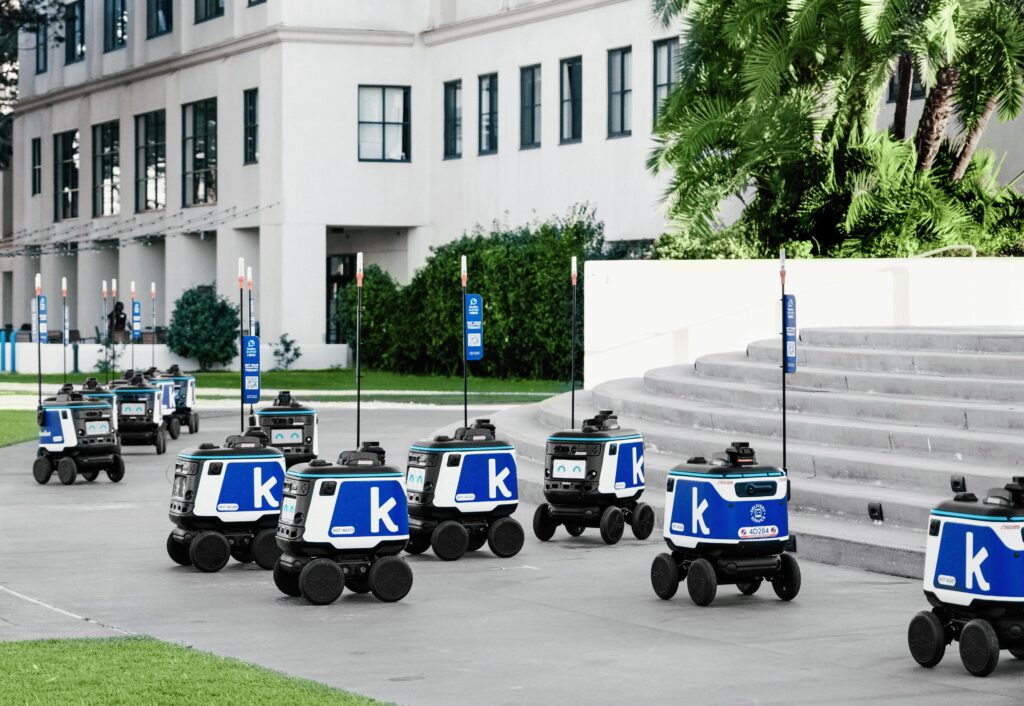In recent years, artificial intelligence (AI) has rapidly reshaped numerous industries, and logistics is no exception. The logistics and supply chain sector, known for its complexity and high demand for efficiency, has found new ways to streamline operations, cut costs, and enhance customer satisfaction through AI. From optimizing routes to predicting demand, AI technologies are transforming how logistics companies operate. In this blog, we’ll explore how AI is revolutionizing logistics and supply chain management and the benefits it offers.

1. Predictive Demand Forecasting
One of the most valuable applications of AI in logistics is its ability to forecast demand accurately. AI algorithms analyze vast amounts of data—from historical sales records to seasonal trends and even external factors like weather patterns. With predictive demand forecasting, companies can optimize inventory levels, reduce storage costs, and prevent stockouts. This approach ensures that companies can meet customer demand without overstocking, which reduces waste and enhances overall efficiency.
2. Route Optimization and Real-Time Tracking
Route optimization is a crucial factor in logistics, especially for companies handling last-mile delivery. AI-driven systems analyze traffic data, road conditions, and delivery windows to determine the most efficient routes. These optimized routes help minimize fuel consumption, reduce delivery times, and ultimately save on transportation costs. Additionally, AI-enabled real-time tracking allows companies to monitor shipments throughout the supply chain, providing accurate ETAs to customers and improving transparency.
3. Automated Warehousing and Inventory Management
AI-powered automation in warehouses has transformed inventory management. Robots and automated picking systems, guided by AI algorithms, can streamline warehouse operations, reducing human error and speeding up order fulfillment. Machine learning algorithms also monitor stock levels, automatically reorder supplies when levels run low, and reduce the need for manual checks. By improving accuracy and efficiency, AI in warehousing helps companies meet growing demand while keeping operational costs low.
4. Enhanced Customer Service with AI Chatbots
Customer service is essential in logistics, as clients often need timely updates or answers to questions about their shipments. AI chatbots, available 24/7, can handle common customer inquiries quickly, from tracking packages to rescheduling deliveries. By managing routine inquiries, chatbots free up human agents to handle more complex customer issues, enhancing service quality and reducing wait times.
5. Risk Management and Supply Chain Resilience
AI plays a critical role in identifying and mitigating risks within the supply chain. Machine learning algorithms can assess data patterns to detect potential disruptions, such as delays, demand fluctuations, or supplier issues, before they impact operations. AI tools provide logistics companies with early warnings and actionable insights to prevent or minimize these disruptions. During unexpected events—such as natural disasters or global crises—AI can recommend alternative routes or suppliers, helping companies maintain supply chain resilience.
6. Sustainability and Environmental Impact
As companies prioritize sustainability, AI is helping logistics providers reduce their environmental footprint. By optimizing delivery routes and warehouse operations, AI reduces fuel consumption and energy usage, contributing to lower emissions. Predictive analytics also help minimize waste by aligning inventory with actual demand, and AI-guided drones or electric vehicles further reduce carbon footprints. With AI’s assistance, logistics companies can achieve both operational efficiency and environmental responsibility.
Challenges of AI Implementation in Logistics
While AI presents tremendous opportunities for the logistics industry, there are also challenges in implementation:
- Data Security and Privacy: Logistics companies handle sensitive information, including customer data and business processes. Ensuring data security while leveraging AI-driven solutions remains a top concern.
- High Initial Costs: Integrating AI technologies can require substantial investment in infrastructure, staff training, and system upgrades. Smaller logistics providers may find it challenging to implement AI on a limited budget.
- Need for Skilled Personnel: Managing and optimizing AI systems requires specialized knowledge, making it essential to have a trained workforce that understands both logistics and advanced technology.
Conclusion
AI is reshaping the future of logistics by enabling companies to operate more efficiently, adapt to demand changes, and improve customer experiences. From predictive demand forecasting to real-time tracking and automated warehousing, AI has become indispensable for any logistics company looking to stay competitive in today’s market. By embracing AI, logistics providers can make better, data-driven decisions that drive growth and sustainability.
At Chiluck Investments Limited, we’re committed to staying at the forefront of these technological advancements. Our logistics services integrate cutting-edge AI tools to enhance operational efficiency, optimize delivery times, and provide the highest level of service to our clients. As we look to the future, Chiluck remains dedicated to innovation and sustainable logistics solutions that meet our clients’ evolving needs.
